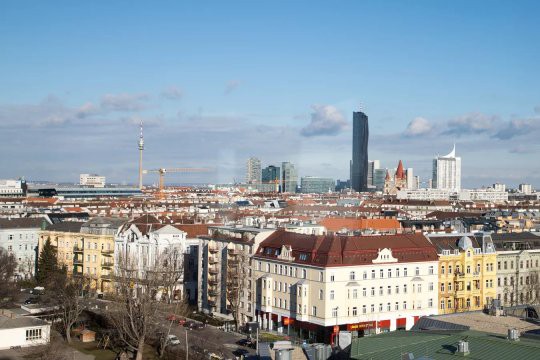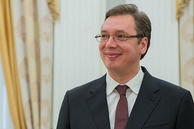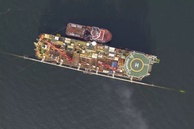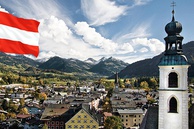Many tend to view Austria as a traditionally stable and neutral corner of Europe. However, the country has been witnessing a steady growth in processes which give a noticeable degree of turbulence to the local political climate. And all this is happening in the run-up to the 2024 parliamentary elections, in which people will elect members of the National Council (the lower house of parliament) and the European Parliament. Apparently, the election time in the Alpine republic promises to be hot.
As it happens, it was sociologists who ‘rocked the boat’ first – for more than six months they have been signaling a sustainable decrease in public trust in the government led by Chancellor Karl Nehammer. The ruling coalition of his People’s Party (ÖVP) and Green Party (Grüne) has been losing its popularity after their voters became increasingly aware of the fact that the “black-greens” were failing to address the challenges the country is faced with. For Austrians, just as for their German neighbors who are used to comfort and stability, such challenges proved painful – the long-running Covid restrictions and the ensuing economic problems, tangible inflation, accompanied by rising prices and the drop in living standards, skyrocketing tariffs, feeling tired of endless migrants, and finally, the aggressive information and foreign policy attacks on such a crucial value of the “Alpine democracy” as national neutrality, something which has caused the irritation of many.
The endurance trial of the latter in the context of the Ukrainian crisis and sanctions against Russia coupled with all the other problems has encouraged most citizens to search for an alternative to the current political symbiosis of the conservative “populists” and champions of the environmental agenda. A government agenda should defend our interests better – the Austrians resolved, turning their attention once again to the Eurosceptics from the Freedom Party (FPÖ), who are fully aware of people’s needs and preferences and are consistently gaining more points. The Freedom Party of Austria was part of the ruling coalition under Chancellor Sebastian Kurz (the Austrian People’s Party) but was kicked out of power in 2019 along with the dissolution of the then Cabinet over the so-called “Ibiza-gate case”, a political scandal involving the then Vice-Chancellor of Austria from the Freedom Party, Heinz-Christian Strache. However, it looks like Austrians bear no grudges.
In turn, the right-wing Freedom Party has learned better than others how deeply citizens are affected by any careless moves on the part of the political elite which encroach on their individual comfort and standard of life, or which may drag the country into any kind of international friction – be it the appeals to provide shelter for hordes of migrants, allocate money for Ukraine, or join sanctions to fence themselves off Russia, even though Russian gas is currently heating the homes of nearly 50% of Austrian households. The party members have thus included all public worries in their slogans and rhetoric, including condemnation of the anti-Russian policies pursued by the EU.
As a result, should the elections to the National Council take place now, both ruling parties would have the support of only 32% of voters – “a catastrophe for the “black-greens”, as the local press put it. The Chancellor’s People’s Party would get 22% and the “greens” - 10%. Practically the same percentage – one third of Austrians – have expressed readiness to vote for the Freedom Party (30%). These are the results of a national survey, published early in September by the authoritative Vienna-based sociological service PLG (Paul Lazarsfeld Gesellschaft für Sozialforschung). They were backed by another public opinion poll, carried out nearly at the same time by the company Unique Research. The results are similar – the Freedom Party is in the lead with 32%, whereas the ruling coalition has become an outsider: the People’s Party -24%, the «greens» - 9%. Coming second in popularity ratings are the opposition Social Democrats, who enjoy the support of 23% of Austrians (only 21%, according to Unique Research).
These reports reveal not only a record level of people’s trust in the Austrian Freedom Party (FPÖ), but a de facto failure of the current policies of the ruling coalition and Chancellor Nehammer personally. «If Austria voted [next] Sunday, it would trigger a political earthquake», - the Vienna portal «Austria-Today» said on September 1. According to local media, the far-right leader Herbert Kickl «is the only one who enjoys maximum support from the voters». He “has always excelled in rhetoric and argumentation”. Kickl is not new to the Austrian voter. In the Kurz government he occupied the post of interior minister and made a name for himself by changing the state-run “Migrant Registration Centers” to “Back Flight Centers”, a fact that speaks volumes as such.
In fact, the far-right leader must have resolved to entirely rely on the constitutional principle of neutrality and has firmly decided to defend his electorate against Brussels’ migration policy. As for relations with Moscow, the Freedom Party is keeping a close eye on Austrians’ moods, supporting those who are unwilling to enter into confrontation with a country that guarantees their energy wellbeing. And those are in the majority. The Austrian branch of the world-famous German Institute INSA keeps signaling a rise in the number of residents who are against the EU’s current sanctions against Russia. A September survey carried out by INSA-Austria has revealed an impressive outcome – 54% of Austrians (against 41% in April) voted against sanctions pointing out that such measures have negative consequences for Europe. Only 12% of respondents believe that tough measures against Russia will prove effective. With this in mind, Herbert Kickl has pledged to resort to Austria’s right of veto in the European Council to abolish “the senseless sanctions” should he be elected chancellor.
About the Ukrainian conflict, the Freedom Party is demonstrating a complete independence of stance. In March, as President Vladimir Zelensky started his video address to the Austrian parliament, the Freedom Party deputies put signs on their desks with inscriptions “Neutrality” and “Peace” and left. More than half of the deputies from the Social Democratic Party of Austria boycotted the event. Meanwhile, the present federal government of Austria maintains that its position is neutral in relations to military operations, not political principles. Without supplying Kyiv with weapons, Vienna is backing the EU sanctions, permitting the delivery of weapons for Ukraine via the Austrian territory. The Russian Ambassador to Austria Dmitry Lyubinsky has lamented in an interview with Izvestia that “we are witnessing an increasingly greater erosion of Austrian sovereignty”. Ambassador Lyubinsky pointed out: «Austria has taken “its” side”, citing harsh anti-Russian rhetoric and unjustified expulsions of Russian diplomats.
The increasing popularity of the Freedom Party and its leader has left the EU’s ruling circles without enthusiasm. The pro-EU Brussels-based editors of the widely known Politico has responded with a worrisome article describing Kickl as “a pro-Russian advocate of conspiracy theory” and a proponent of “orbanism”, that is, a supporter of the policies pursued by Prime Minister of neighboring Hungary Viktor Orban. The more so since during his visit to Budapest Kickl referred to Hungary as “a cradle of national self-determination and resistance to globalist interference from Brussels”. For Politico, the coming to power of the Freedom Party will “catastrophic” for the EU.
Although the next parliamentary elections in Austria are due in autumn next year at the earliest, concerns over their outcome inside the ruling “black-green” coalition are making themselves felt. Chancellor Nehammer is fully aware that the advance of the right wingers should be offset by measures which would receive a hearty welcome from the public and which would diminish the current social problems. To this end, he has secured a tangible rise in pensions, has paid climatic bonuses, etc. Amid the unprecedented migrant crisis in Lampedusa and the threat of tsunami with refugees from North Africa, Nehammer has resolved to introduce a new border control on the border with Italy in Carinthia and Tirol. In addition, the chancellor has for nine months been using his right of veto in the EU in relation to Romania and Bulgaria, denying them access to the border-free Schengen Area, despite all the criticism and protests on their part. «Expansion can be carried out only when protection of external borders comes to work. At present, the time is not right for it», — he said.
In foreign policy, Nehammer has to repulse attacks of criticism from his European colleagues for maintaining close business ties with Russia. At the official level, at Vienna's initiative, the dialogue on trade and economic agenda has de facto been frozen, but the business circles are as active as before. Business ties across the entrepreneurial community are still there, with few, if any, willing to lose the increasingly lucrative and ever-expanding Russian market. Despite the tough sanctions, only a negligible share of 650 Austrian businesses operating in Russia have closed and left.
Nehammer has repeatedly given it to understand that Austria continues to see energy cooperation a priority and will keep considering it as such in the future. However, he followed the political situation, speaking about it not without a grimace – Austria will continue to buy Russian gas, though “it views it as an unpleasant necessity”. Under pressure from the EU, Austrian Foreign Minister Alexander Schallenberg had to declare recently about his intention “to radically reduce our energy dependence on Russia”. But in the future. This is expected to happen in 2027, though many experts doubt it. So far, part of gas supplies are being delivered via Germany and Italy, and Austria is planning to develop these routes.
At times, the Nehammer Cabinet finds it easier to address external threats than the internal ones. Austrians are unlikely to forgive the “black-greens” the scandalously high-profile case involving the Austrian Television and Radio Company ÖRF, or, to be more exact, the new law on financing it. While still under discussion, the law triggered a powerful wave of public criticism. Nevertheless, it was literally “pulled through” parliament and approved, despite all the protests and mass urges on the deputies to torpedo it. The law envisages an obligatory tax as of January 1 next year on all households to finance ÖRF in the sum of at least 15,30 euro per month for every Austrian. The federal government thereby expects to bring the company’s annual budget to 789 million euros. What for? The answer is clear. According to sociological surveys, an absolute majority of the population disagree to such a tax and view it as unfair. Judging by INSA survey of 4-7 September, 67% of citizens have voted against the new law and only 23% consider it appropriate. As the local press reports, “this outcome comes as the first serious slap in the face for those politicians who are in favor of coercive financing in a mass format of ÖRF, which is domineering on the media market without it».
Naturally, the Freedom Party could not afford to miss such a rare opportunity to attack the government and organize one more “slap in the face”. The Party began with mounting a mass petition against “the punitive tax”, urging the public “to say ‘no’ to this rip-off”. As they pointed out, “the luxurious salaries of ÖRF leaders, the equally posh pensions and the shockingly expensive “golden parachutes” demonstrate that the problem of ÖRF is not the income but the spending”. The next phase of the protest is a collective lawsuit to the Austrian Constitutional Court, to be filed by the Vienna-based law firm LVA24 Prozessfinanzierung GmbH.
As for other major players among the opposition, the Freedom Party is currently being joined by the Social Democrats. The Social Democratic Party of Austria (SPÖ), led by Andreas Babler, has not been doing well of late. Just a year ago, the “reds” under the former leader of the party, Pamela Rendi-Wagner, enjoyed a confidence rating of 29%, but apparently, they have lost much of it by now. The Social Democrats’ reputation was stained by the obscure story of the struggle for post of new Social Democratic leader between Andreas Babler and Hans Peter Doskozil following the departure of Rendi-Wagner from politics. The Austrians were wary of the inter-party havoc in June, when Doskozil was originally pronounced the winner, but the party leadership went to Babler. All this allegedly happened over the confusion in vote counting. The battle between two party functionaries, which marked a sensation for quiet Austria, immediately earned the status of “a political quake” and “red chaos” in the press. «Does this party still have a chance to be elected?» - the commentators raged.
Indeed, after such a high-profile scandal, the ratings of Social Democrats started to decline, with their new attempts to attract public attention failing to secure understanding so far. Most Austrians showed no enthusiasm over the idea of a 32-hour fully paid working week, which was proposed by Babler. Babler thought that in this case Austrians would have more free time in the future. “It sounds too good to be true: work less, earn the same”, - the press responded, with irony and skepticism. The business, however, reacted seriously and with worry. The Austrian Federation of Industry announced that cutting the work time to 32 hours made no sense and would inevitably lead to considerable losses in citizens’ incomes. «In the course of service time, these losses will amount to the cost of a condominium”, - President of the Federation, Georg Knill, concluded. Most citizens, as it seems, are aware of that. The survey, carried out by Unique Research for «Heute» (by phone and online, 800 respondents), shows that Babler’s idea about free time is shared by only 41% of respondents. As expected, most proponents of the idea are supporters of the Social Democrats, though, as the press acrimoniously put it, quite a few of those “willing to pass time in yacht clubs” come from the “green” electorate. 48% of respondents discarded the initiative as unrealistic.
Attentive observers will definitely notice that the current political layouts in Austria are largely reminiscent of the situation in Germany, where the right-wing Alternative for Germany has been ardently criticizing the policies of the coalition Cabinet of Chancellor Scholz and has been pledging a time of change, thereby building up the ranks of its supporters, while the left-wing political spectrum has been losing its supporters among the electorate, including the Left Party, and the so far ruling Social Democratic Party. The trend is clear, the motives for it are largely identical. But Austria is still Austria, which means that the “Alpine democracy” may, despite the current political forecasts and expectations, yield a lot of surprises in the foreseeable future.
The opinion of the author may not coincide with the position of the Editorial
read more in our Telegram-channel https://t.me/The_International_Affairs

 10:55 04.10.2023 •
10:55 04.10.2023 •



























